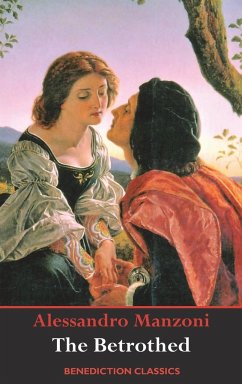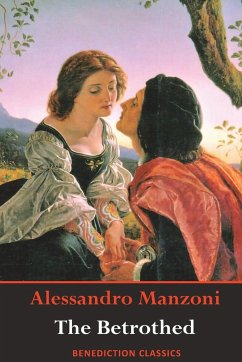"A gift to humanity" - Giuseppe Verde. "The book's real greatness lies in its delineation of character" -- The Penguin Companion to European Literature. "The Great Italian Novel" - The Wall Street Journal. Manzoni's The Betrothed is indeed "The Great Italian Novel." It is the story of the love and enforced separation of a young peasant boy and girl in northern Italy, during the seventeenth century plague, in a world of foreign domination, church power, and feudalism. These are the very forces that have made Italy, and to read The Betrothed is to deeply understand Italian history. Beyond history, Manzoni creates a wide range of vivid characters. Lucia, the heroine, Padre Cristoforo, a Capuchin friar, and Cardinal Federico Borromeo (a historical figure, and cousin of Saint Charles Borromeo) are varied examples of wholehearted goodness. In addition, there are sympathetic portraits of a wide range of other characters who fall short, perhaps well short, of Christian ideals. The novel is famous for its extraordinary description of the Italian Plague of 1629-1631 which ravaged northern and central Italy, throwing society into confusion and killing perhaps a million people. The Betrothed is a historical romance par excellence-probing the human condition and thoroughly examining Italian history. It was initially published in three volumes from 1825 to 1827. Manzoni feared it would have only twenty-five readers. However, it soon became the most read Italian novel, and by 1839 it had gone through numerous official printings, and in addition there were no less than 59 unauthorised editions in Italian and fourteen in foreign languages. Today almost all Italians have read it, at least once, and many enjoy quoting from it. Phrases from the novel have entered the Italian language. It is regarded as one of the masterpieces of world literature. The novel is a symbol of the Risorgimento, Italian Unification, because of its patriotic message and its fundamental role in the development of the modern unified Italian language. Alessandro Manzoni (1785-1873) was an Italian novelist, poet and philosopher, most famous for The Betrothed. Manzoni ranks second only to Dante in Italian literary history. Verdi claimed that The Betrothed (1827) is "a gift to humanity." According to the critic, Georg Lukács The Betrothed is a universal portrait of Italy so complete that it exhausted the genre of the historical novel. All Italian children read it in school About this edition: The Betrothed was originally published in three volumes. This edition is complete, containing all three volumes. The text is set in a generous eleven point font.
Bitte wählen Sie Ihr Anliegen aus.
Rechnungen
Retourenschein anfordern
Bestellstatus
Storno









